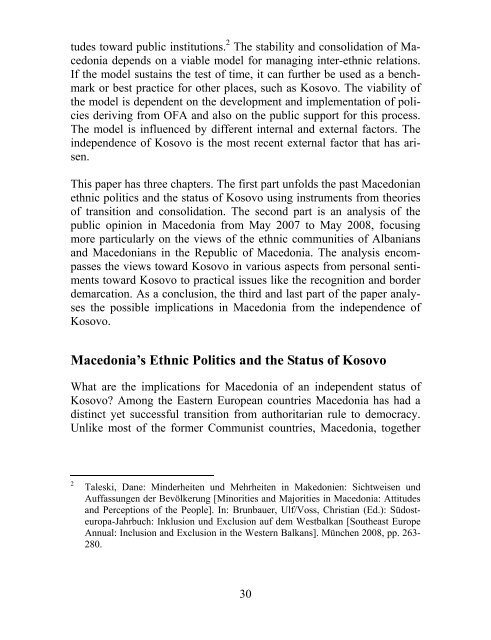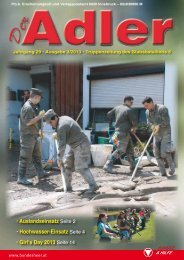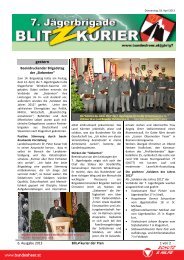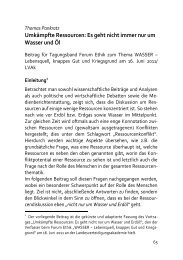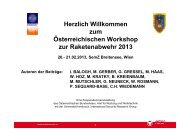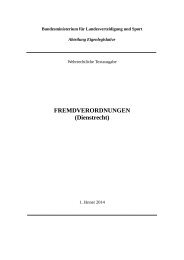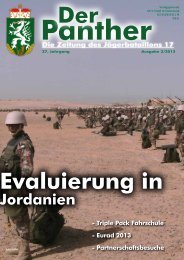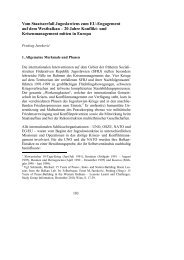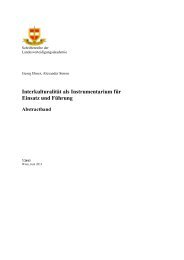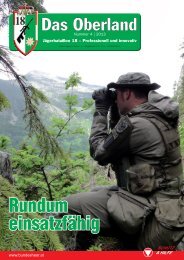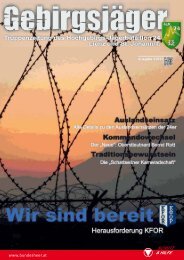Cutting or Tightening the Gordian Knot
Cutting or Tightening the Gordian Knot
Cutting or Tightening the Gordian Knot
You also want an ePaper? Increase the reach of your titles
YUMPU automatically turns print PDFs into web optimized ePapers that Google loves.
tudes toward public institutions. 2 The stability and consolidation of Macedonia<br />
depends on a viable model f<strong>or</strong> managing inter-ethnic relations.<br />
If <strong>the</strong> model sustains <strong>the</strong> test of time, it can fur<strong>the</strong>r be used as a benchmark<br />
<strong>or</strong> best practice f<strong>or</strong> o<strong>the</strong>r places, such as Kosovo. The viability of<br />
<strong>the</strong> model is dependent on <strong>the</strong> development and implementation of policies<br />
deriving from OFA and also on <strong>the</strong> public supp<strong>or</strong>t f<strong>or</strong> this process.<br />
The model is influenced by different internal and external fact<strong>or</strong>s. The<br />
independence of Kosovo is <strong>the</strong> most recent external fact<strong>or</strong> that has arisen.<br />
This paper has three chapters. The first part unfolds <strong>the</strong> past Macedonian<br />
ethnic politics and <strong>the</strong> status of Kosovo using instruments from <strong>the</strong><strong>or</strong>ies<br />
of transition and consolidation. The second part is an analysis of <strong>the</strong><br />
public opinion in Macedonia from May 2007 to May 2008, focusing<br />
m<strong>or</strong>e particularly on <strong>the</strong> views of <strong>the</strong> ethnic communities of Albanians<br />
and Macedonians in <strong>the</strong> Republic of Macedonia. The analysis encompasses<br />
<strong>the</strong> views toward Kosovo in various aspects from personal sentiments<br />
toward Kosovo to practical issues like <strong>the</strong> recognition and b<strong>or</strong>der<br />
demarcation. As a conclusion, <strong>the</strong> third and last part of <strong>the</strong> paper analyses<br />
<strong>the</strong> possible implications in Macedonia from <strong>the</strong> independence of<br />
Kosovo.<br />
Macedonia’s Ethnic Politics and <strong>the</strong> Status of Kosovo<br />
What are <strong>the</strong> implications f<strong>or</strong> Macedonia of an independent status of<br />
Kosovo? Among <strong>the</strong> Eastern European countries Macedonia has had a<br />
distinct yet successful transition from auth<strong>or</strong>itarian rule to democracy.<br />
Unlike most of <strong>the</strong> f<strong>or</strong>mer Communist countries, Macedonia, toge<strong>the</strong>r<br />
2 Taleski, Dane: Minderheiten und Mehrheiten in Makedonien: Sichtweisen und<br />
Auffassungen der Bevölkerung [Min<strong>or</strong>ities and Maj<strong>or</strong>ities in Macedonia: Attitudes<br />
and Perceptions of <strong>the</strong> People]. In: Brunbauer, Ulf/Voss, Christian (Ed.): Südosteuropa-Jahrbuch:<br />
Inklusion und Exclusion auf dem Westbalkan [Sou<strong>the</strong>ast Europe<br />
Annual: Inclusion and Exclusion in <strong>the</strong> Western Balkans]. München 2008, pp. 263-<br />
280.<br />
30


